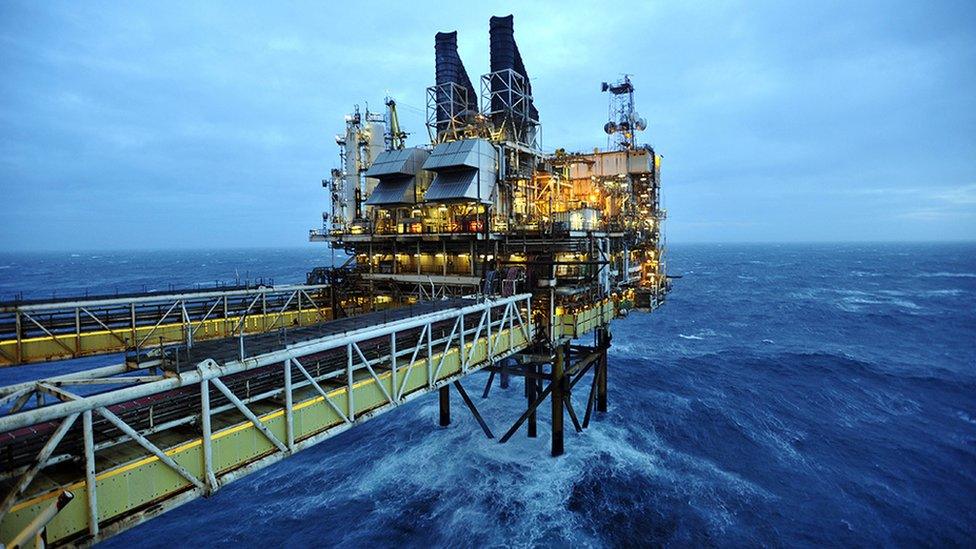Calls for 'reasoned debate' over oil and gas future
- Published
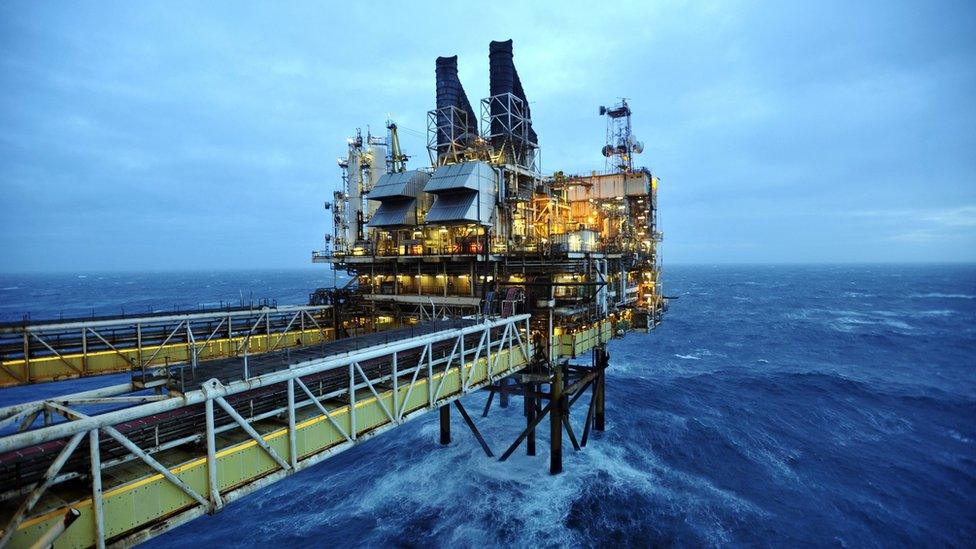
Business leaders have written a joint open letter to party leaders calling for a "reasoned debate" over the future of oil and gas in the UK.
The call comes after plans for the controversial Cambo Oil field off Shetland were put on hold.
The letter says any statements calling for an end to new exploration have shaken investor confidence, placing tens of thousands of jobs at risk.
It warns politicians against creating a "hostile investment environment".
The letter, from Aberdeen & Grampian Chamber of Commerce, supported by The British Chambers of Commerce and Scottish Chambers of Commerce, has also been signed by 58 leading figures from business and civic life in Aberdeen.
It says the economic wellbeing of whole communities across the UK is also being put at risk.
The letter adds that the statements calling for an end to new exploration "threaten the very basis of a fair and inclusive transition at the most crucial point in our collective journey to a net-zero society".
"A transition, by definition, is a change of state over time," it says. "This is one of the most complex challenges we have faced in our history and it doesn't lend itself to a simple, 'Who's good, who's bad? Who's green, who's not?' approach. To characterise it in this way is overly simplistic.
"We must now pause and allow for a reasoned debate about our energy future to take place. At the same time, we urge politicians to reflect carefully on their public statements on oil and gas and the impact they have on investment in the industry.
"We must not create an adverse policy environment at this crucial moment in our energy transition journey."
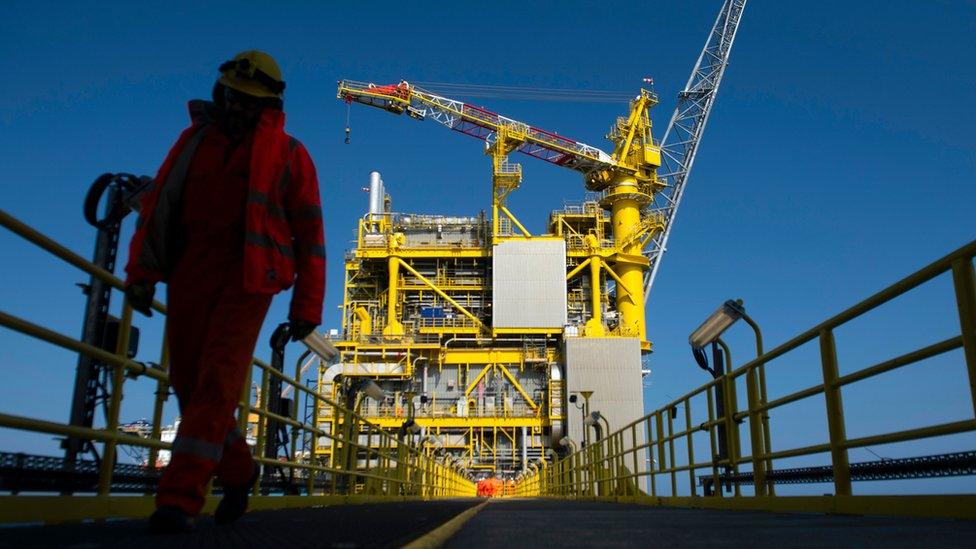
The letter adds that by 2050, the International Energy Agency projects that global oil and gas demand will fall by 80%, but 20 million barrels per day will still be needed.
"Therefore, there is no current future scenario where there is not a requirement for some oil and gas," it says. "Meantime, it continues to be required for people to travel, heat and power their homes and for the manufacture of many everyday goods."
"This leaves us with two options; to produce this domestically, with full control over the regulatory environment in which it is extracted; or to import an increasing amount of our energy, with the heavier carbon toll that shipping it from other parts of the world carries. The latter makes little economic sense, and even less environmental sense."
'Hostile investment environment'
Russell Borthwick, chief executive of Aberdeen & Grampian Chamber of Commerce, said: "We have a shared interest in getting to net zero as quickly as possible, but over recent months our region has been portrayed as part of the problem rather than part of the solution.
"The reality is that the skills, people, and experience embedded in the north-east of Scotland have quietly been leading the way in moving the UK towards its net-zero targets, without any intervention from COP26.
"However, turning the North Sea into a hostile investment environment today does nothing to support that transition. In fact, it does the opposite, driving investment and tens of thousands of jobs away to other regions of the world."
He added that the energy-transition opportunity for Aberdeen could be bigger than the oil and gas industry - but to get there, strong leaders were needed who were willing to "cut through the noise, see the big picture and get our transition steps in the right order to protect jobs, provide retraining opportunities and create new ones".
Deirdre Michie, chief executive of OGUK, which represents the UK's offshore oil and gas industry, said: "Right now, we need oil and gas for 73% of our total energy, and so the transition to carbon neutrality will be a huge and complex task.
"We will only be able to achieve it with careful planning by policy-makers who think long-term to develop clear government policies that are then supported by all politicians working together in the national interest. "
She said that for years to come, oil and gas needed to be part of the energy mix.
"It will be far better for the nation and the environment if we source these fuels from around our shores rather than relying on even more imports," she added.
- Published10 December 2021
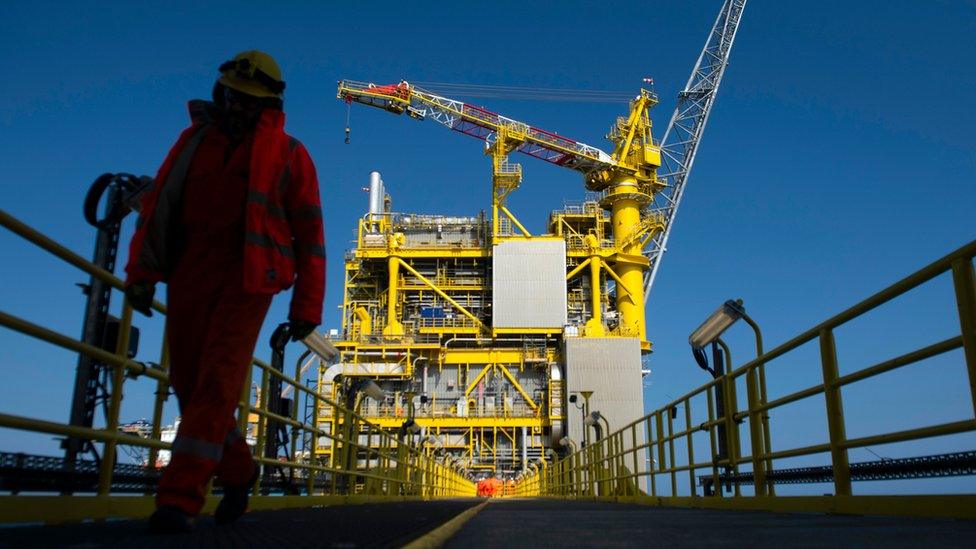
- Published3 December 2021
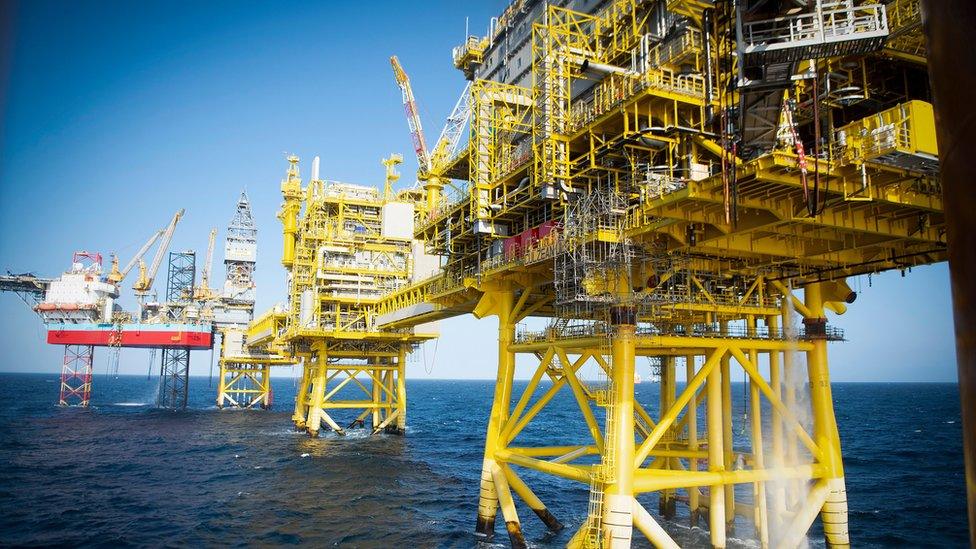
- Published2 December 2021
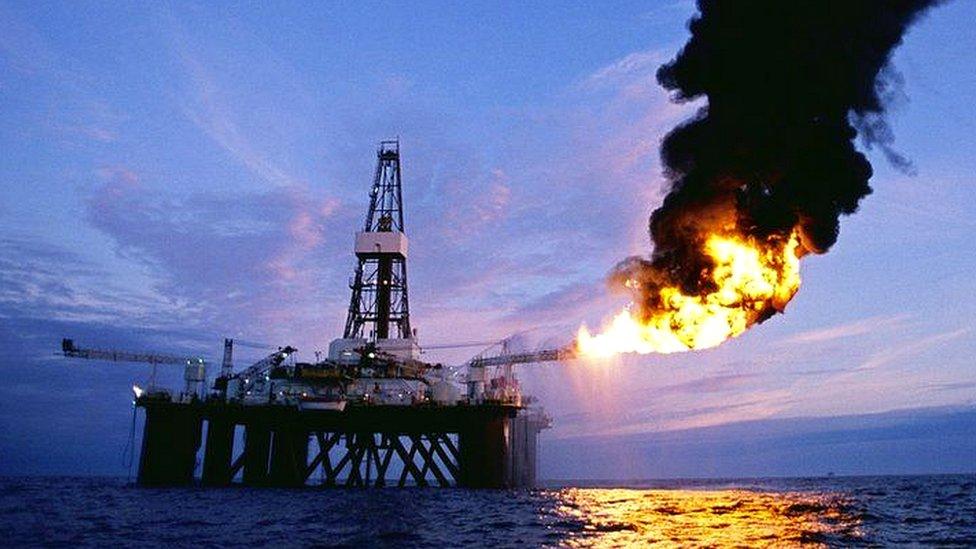
- Published3 November 2021
